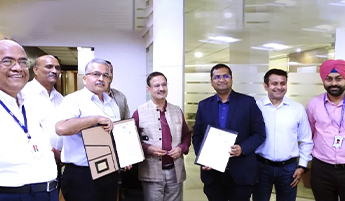The battery management system (BMS) is a vital component in electric and hybrid vehicles, ensuring safe and reliable battery operation. Traditional BMS solutions faced limitations in computing power and flexibility due to embedded hardware. However, the industry is now turning to innovative cloud-connected BMS solutions to overcome these challenges and unlock a host of benefits.
Enhanced Computing Power and Scalability:
Cloud-connected BMS solutions offer access to enhanced computing power and scalability. Leveraging cloud computing capabilities, BMS systems can perform complex calculations and analysis in real-time, enabling accurate battery monitoring and control. The processing of vast amounts of data, including battery performance metrics and usage patterns, empowers stakeholders to make data-driven decisions, optimize battery performance, and improve overall system efficiency.
Real-Time Monitoring and Remote Control:
Cloud connectivity enables real-time monitoring and remote control of battery management systems, regardless of geographical location. This capability is valuable for fleet operators, manufacturers, and service providers, allowing remote battery health monitoring, issue diagnosis, and maintenance tasks. With cloud-connected BMS solutions, stakeholders can access a comprehensive dashboard that provides detailed insights into individual battery cells, state of charge, temperature, and other critical parameters. By remotely adjusting charging profiles, optimizing energy consumption, and identifying potential anomalies, stakeholders can prolong battery life, enhance safety, and reduce downtime.
Predictive Maintenance and Fault Detection:
Cloud-connected BMS solutions use artificial intelligence and machine learning algorithms for predictive maintenance and fault detection, incorporating data analytics and optimization techniques. Real-time and historical data analysis identifies patterns and anomalies that may indicate potential battery failures or suboptimal performance. Predictive maintenance allows stakeholders to proactively address issues before they escalate, preventing costly breakdowns and optimizing battery lifespan. Moreover, cloud connectivity enables BMS solutions to learn from a vast network of vehicles and allows stakeholders to benchmark their BMS systems against industry standards, identify areas for improvement, and stay at the forefront of technological advancements.
VVDN’s expertise in Cloud Connected Battery Management System:
VVDN’s expertise in Battery Management Systems (BMS) extends to their specialization in Cloud Connected Battery Management Systems. The development and design of cloud connected BMS requires a comprehensive approach, involving expertise in electrical engineering, cloud & firmware engineering, control systems, and battery chemistry.
At VVDN, we recognize the growing significance of cloud connected BMS in various industries, particularly in the realm of electric vehicles, renewable energy storage, and portable electronics. Our dedicated power electronics team stays at the forefront of the latest developments in battery technology, safety standards, and regulations, ensuring that our cloud connected BMS solutions remain cutting-edge and in compliance with industry requirements.
VVDN collaborates with OEMs, auto manufactures, tier 1 suppliers, and battery manufacturers to customize cloud connected BMS solutions that precisely cater to the unique needs of their specific applications. Our focus on innovation and sustainability empowers businesses to drive the future of battery management while enhancing their operational efficiency and overall performance. With VVDN’s Cloud Connected BMS expertise, clients can embrace the potential of cutting-edge technologies and unlock new possibilities in their industries.
Looking to develop a Battery Management System (BMS)? Write to us at info@vvdntech.com
























